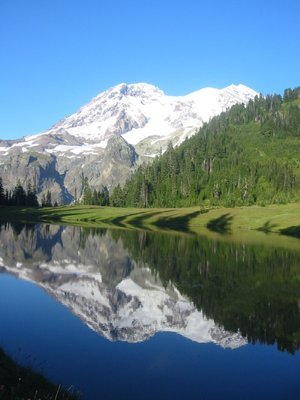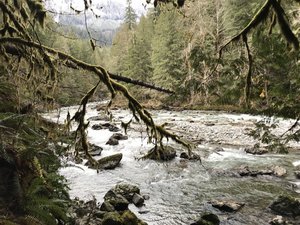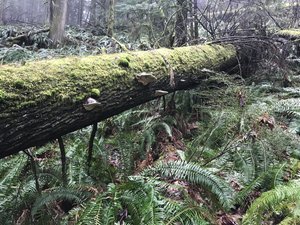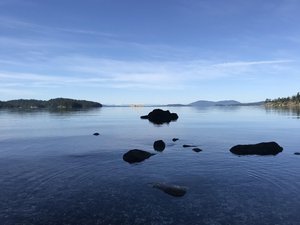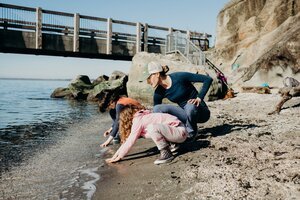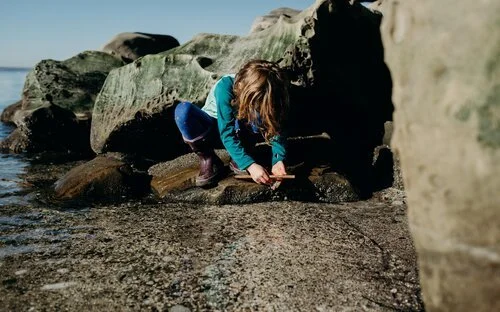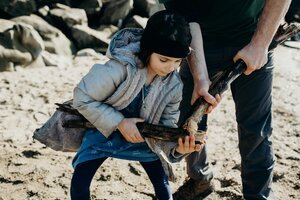Why Wild Whatcom
Land Acknowledgement
We acknowledge that this land is the traditional territory of the Lummi and Nooksack Peoples.
Their presence is imbued in these mountains, valleys, waterways, and shorelines.
We aim to nurture our relationship with our Coast Salish neighbors,
and the shared responsibilities to their homelands where we all reside today.
We recognize that if it were not for their historic and continued commitment
to preserving these lands we, as a community and organization,
would not be able to benefit from the lush, vibrant landscape
we live, work, and play in today.
Mission and Vision
Wild Whatcom fosters lifelong connections to nature. We do this in order to promote the health and well-being of young people in our community and to support our community in raising a generation of environmental stewards who care about each other and the planet.
More and more research points to what we know intuitively—nature promotes healthy bodies and minds. However, across the country, children are increasingly spending time indoors, disconnected from their natural environments and communities. Wild Whatcom aims to provide a positive antidote and fun alternative.
Studies have shown that children who participate in outdoor programs have:
Stronger self-esteem and sense of purpose
Improved focus and more positive attitudes
Increased physical activity and confidence
Deeper commitments to environmental stewardship
We are also living through a time where we face daunting ecological and social challenges. Many of us find hope in young people working to make a positive difference in the world. Wild Whatcom aims to support the development of engaged youth who value nature, understand social responsibility, and lead collaboratively—a generation of environmental and social change-makers.
Need and Opportunity
Getting kids outdoors is a vital part of long-term community health and whole person development, yet outdoor education through schools is minimal. Three quarters of the respondents to a recent study reported that they had little if any access to nature through their schools(1).
Time in nature is not only associated with higher levels of physical activity, but is also linked with evidence-based health benefits including reduced stress, improved mental health, increased prosocial behavior and connectedness, greater happiness, decreased obesity and diabetes, and improved cognitive and motor development, among others (2,3).
There is also a correlation between access to nature and income levels, intensifying gaps in health equity(4). Many residents of Whatcom County continue to face significant poverty, inactivity, toxic stress, and disconnection—all of which lead to poor health outcomes(5). Wild Whatcom aims to support the health of youth in our community by providing them with opportunities to develop their sense of wonder, give back through stewardship, and positively connect with peers and adult mentors in their community.
REFERENCES
1. The Nature Conservancy (2013). Connecting America’s Youth to Nature Survey Results. The Nature Conservancy, Toyota USA Foundation, Foundation for Youth Investment (Funders). Fairbank, Maslin, Maullin, Metz & Associates and Public Opinion Strategies (Polling Teams).
2. Bratman, Hamilton, Kahn, Daily, Gross (2015). Nature experience reduces rumination and subgenual prefrontal cortex activation. Proceedings of the National Academy of Sciences Jul 2015, 112 (28), 8567-8572. Doi:10.1073/pnas.1510459112.
3. Frumkin, et. al. (2017). Nature Contact and Human Health: A Research Agenda. Environmental Health Perspectives, Jul 2017, 125 (7). Doi: https://doi.org/10.1289/EHP1663.
4. Nesbitt, et. al. (2019). Who has access to urban vegetation? A spatial analysis of distributional green equity in 10 US cities. Landscape and Urban Planning Jan 2019, 181 (51-79). Doi: https://doi.org/10.1016/j.landurbplan.2018.08.007.
5. Newell, Astrid (2016). Strategies for Child and Family Health Policy. Whatcom County Health Department Health Board Presentation to the Whatcom County Council, Nov 1, 2016 (page 15). Presentation available at: http://www.whatcomcounty.us/DocumentCenter/View/23164/Health-Board-Agenda-Packet-November-1-2016?bidId=.
Our Approach
“If we want children to flourish, to become truly empowered, then let us allow them to love the earth before we ask them to save it.”
Wild Whatcom prioritizes outdoor education, long-term mentorship, and service.
Learn more about how we build and design our experiences for participants:
Our outdoor explorations are structured yet flexible. Nature provides spontaneous and important lessons that inspire learning in the moment. We utilize the power of play, learning to be "here and now," and innate curiosity to catalyze a love of nature.
Our teaching methods are child-led and Socratic in nature. We use techniques such as answering questions with prompts to inspire reflection and personal discovery. Opportunities for real life problem-solving occur every time we're together. Challenges become collaborative possibilities.
Our service projects are a means to discover the joy in giving—to learn first-hand that to give is to receive—and to expand young people’s awareness of how many ways they can make a difference in their community.
Our activities are expansive and fun. At Wild Whatcom we play games, ask questions, clamber over rocks (and look under them), wonder at the habits of fungi, spend quiet time on our own, hike, create poetry, laugh at the rain, build shelters, follow streams, challenge ourselves, help out, make friends, and get dirty!
Our skills lessons, woven throughout each outing, range from local plant identification and fire-building to self reflection and positive communication. Lesson plans are tailored to the age group and group dynamics and “scaffold,” or build upon one another, to enable participants to practice skills time and again.
“ Wild Whatcom inspires people of all ages to love and care for the earth. At the heart of Wild Whatcom is joy! ”
Impact
Each year, we explore outdoors with thousands of participants, provide hundreds of hours of service to the community, and partner with dozens of local organizations.
Read our Impact Reports to learn more.
Our Story
“ At Wild Whatcom, kids don’t just learn about the earth, they experience it with wonder. ”
It all started in 2004 when one mother began to regularly guide her children and their friends along the beaches and forest trails throughout Whatcom County. Their shared inquiry, discovery, and play naturally materialized into the community-centered outdoor education programs of Wild Whatcom. Our programs grew over the next decade and in 2011 we were officially designated a 501 (c)(3) non-profit organization.
Today, we serve hundreds of children and families in a variety of year-round programs. The inspiration to develop ecological stewards and empowered leaders infuses our curriculum with deep, connected learning about self and place. Life and leadership skills are nurtured alongside naturalist skills to build high quality, healthy relationships with self, others, and the earth. As families and friends exchange stories of amazing adventures and personal growth, requests for our programs continue.
Our goal is to serve and meet the needs of our community. We work hard to ensure accessible and outstanding programs for a diverse audience and are committed to transformative education, community engagement, and sound business practices.
Meet our staff plus board and volunteers.


